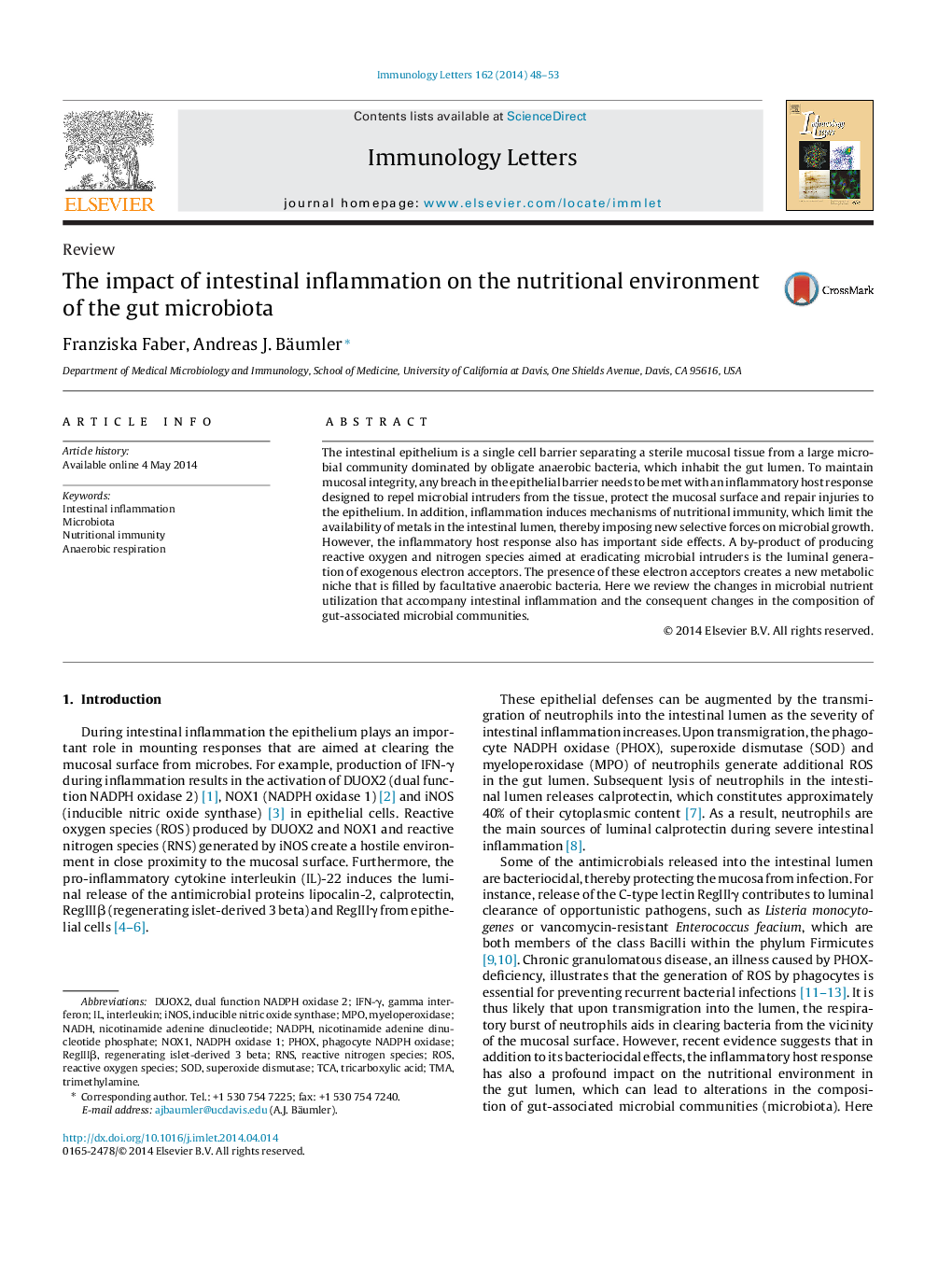| کد مقاله | کد نشریه | سال انتشار | مقاله انگلیسی | نسخه تمام متن |
|---|---|---|---|---|
| 3355381 | 1217173 | 2014 | 6 صفحه PDF | دانلود رایگان |
• Metal withholding mechanisms of the host alter the contest rules for microbes.
• Exogenous electron acceptors are produced as a by-product of the host response.
• New metabolic opportunities created by the host response guide microbiota changes.
The intestinal epithelium is a single cell barrier separating a sterile mucosal tissue from a large microbial community dominated by obligate anaerobic bacteria, which inhabit the gut lumen. To maintain mucosal integrity, any breach in the epithelial barrier needs to be met with an inflammatory host response designed to repel microbial intruders from the tissue, protect the mucosal surface and repair injuries to the epithelium. In addition, inflammation induces mechanisms of nutritional immunity, which limit the availability of metals in the intestinal lumen, thereby imposing new selective forces on microbial growth. However, the inflammatory host response also has important side effects. A by-product of producing reactive oxygen and nitrogen species aimed at eradicating microbial intruders is the luminal generation of exogenous electron acceptors. The presence of these electron acceptors creates a new metabolic niche that is filled by facultative anaerobic bacteria. Here we review the changes in microbial nutrient utilization that accompany intestinal inflammation and the consequent changes in the composition of gut-associated microbial communities.
Journal: Immunology Letters - Volume 162, Issue 2, Part A, December 2014, Pages 48–53
